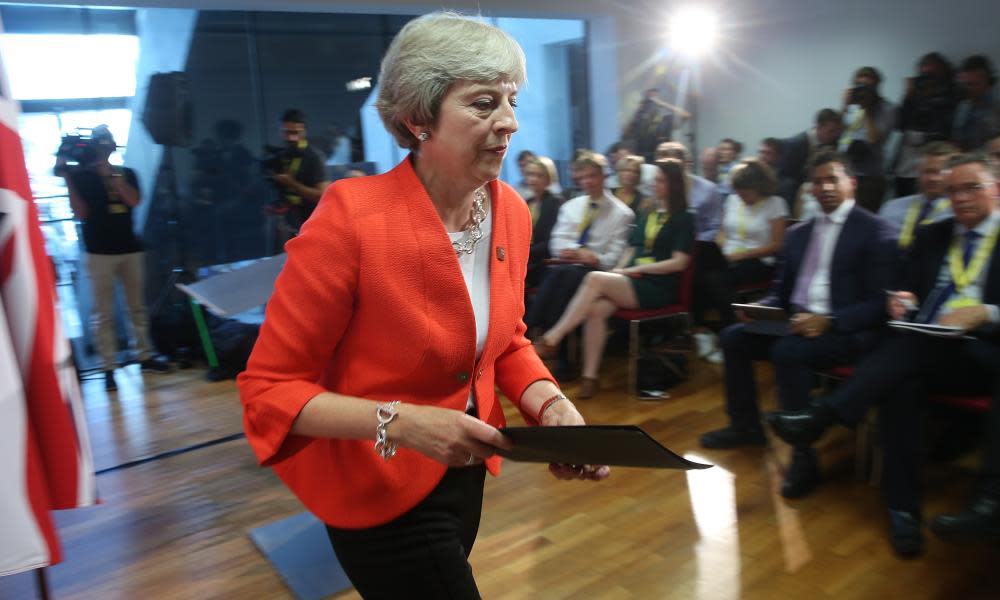The Tories used to stand for stability – now they’re the party of chaos

A party committed to defending the economic interests of rich elites could never win by saying so. After the advent of working-class suffrage, Conservatives had to have an offer for everyone. There would be room at the top for those who laboured hard, they promised. We will keep out the foreigners and harshly punish the criminals. We will be uncompromising in our defence of the union. We will be defiant against external foes. But a mainstay of Tory propaganda was always this: we are a bulwark against chaos, the custodians of economic security. Scare-mongering about Labour’s chilling threat to the economy was even deployed against Tony Blair, a man who posed no serious threat to Thatcher’s consensus: the Tories’ 1997 slogan was “Britain’s booming – don’t let Labour ruin it”. So look now as the Tories prepare the biggest economic shock imposed by a British government in modern history. How can they ever deliver their finger-wagging lectures on economic credibility ever again?
Much media commentary speaks of Theresa May shaking with shock and anger yesterday, and yet the Salzburg rout should not have come as a surprise to anyone paying any attention. Chequers died on arrival months ago: the EU had already dismissed it, and May has been flaunting a corpse for months. What a farce that this was even considered a possibility. The Tory party could not negotiate a deal with itself, let alone 27 foreign states. An administration that, since it incinerated its parliamentary majority, has looked more like the grand finale of a Quentin Tarantino film than a functioning government, believed it could outmanoeuvre a bloc representing 440 million people. And now instead it defiantly marches towards a “no deal” scenario, like a drunk swaggering towards a cliff edge, promising to jump unless his impossible demands are met.
The fear-mongering of the dire official Remain campaign has immunised much of the population from grappling with the reality of no deal. Only when it hits will it be understood. What could it mean? The supposed party of home ownership presiding over the biggest house-price crash in history? A surge in food prices? Recession and unemployment? Even the milder predictions would mean economic and social dislocation. To repeat: how can a party prepared to administer such a shock convincingly oversee a campaign of fear against Labour’s proposals for economic transformation at the next election?
The Tories are the party of big business, yet their former foreign secretary spits out “fuck business”, while their Brexit secretary accuses of businesses of blaming Brexit “rather than take responsibility for their own decisions”. The party of the union – whose former leader, Andrew Bonar Law, once threatened to back armed insurrection in Ulster – has dramatically boosted the likelihood of a united Ireland. The party of Anglicanism even vociferously denounces the archbishop of Canterbury.
The Tories do not seem to understand what they have done. Labour’s commitment to scrap the status quo, in normal times, could have been plausibly portrayed as a frightening risk, an unnerving gamble. But the Tories have sacrificed the rhetoric of conservatism in favour of revolutionary zeal. And in doing so, they have normalised radicalism in British politics. Of course, the Tory project would cause upheaval but protect the interests of its vested interests with a programme of deregulation and tax cuts. They are a reactionary, not a revolutionary party. But they have abandoned their traditional trump card: the promise of stability and order in the face of chaos. And in doing so, they may prove to be midwives of the very socialism that chills them to their bones.
• Owen Jones is a Guardian columnist

 Yahoo News
Yahoo News 
